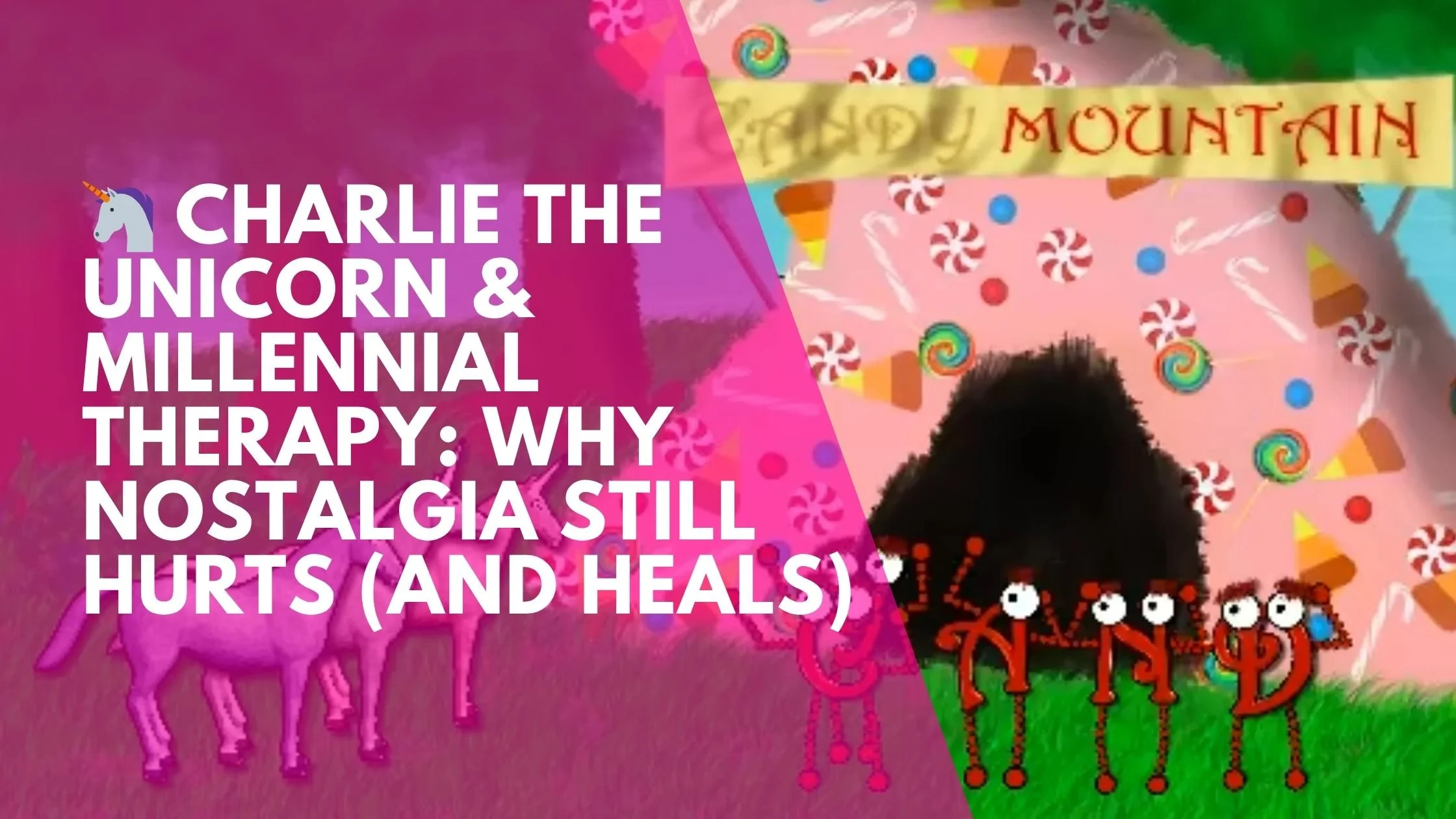🦄 Charlie the Unicorn & Millennial Therapy: Why Nostalgia Still Hurts (and Heals)
Last updated: November 2025
🌈 Key Takeaways
Internet nostalgia can reopen emotions we never processed.
Millennials often use humour to hide anxiety, burnout, or loneliness.
Therapy helps translate nostalgia into self-understanding, not shame.
LGBTQ+-affirming counselling offers space to unpack identity and generational stress.
Free 15-minute intro consult → Book with Tribe Wellness.
Why “Candy Mountain” Still Lives in Our Heads
If you spent your teens quoting “Shun the non-believer!” you’re part of a generation shaped by early-internet chaos. Charlie the Unicorn (2005) was absurd, funny, and deeply strange — a perfect reflection of growing up online before we had language for mental health.
But that silliness masked something real: we learned to laugh off discomfort, suppress feelings, and use irony as armour. Many LGBTQ+ millennials internalised messages that vulnerability was dangerous — so humour became survival.
According to the Australian Bureau of Statistics (2022), LGBTQ+ Australians experience anxiety and depression at more than 1.7 times the national average. Nostalgia can stir those old emotions — and therapy helps us make sense of them instead of reliving them.
How LGBTQ+ Therapy Helps Process Nostalgia & Inner Violence
Therapy isn’t about analysing memes — it’s about understanding what they represent.
At Tribe Wellness we work with queer adults who grew up in the “be strong / don’t feel” culture of the 2000s. Through therapy, you can:
Reclaim joy: Find meaning in humour without self-mockery.
Heal inner violence: Replace self-criticism with curiosity and compassion.
Reconnect: Build healthier relationships with community and self.
Create balance: Learn tools for burnout, boundaries & self-care.
💬 Curious? We offer a free 15-minute intro consult to explore if therapy fits your needs.
Practical Steps for the Internet-Raised Adult
Notice your coping style: Do you joke when things get serious? Pause before defaulting to irony.
Make nostalgia mindful: Revisit old videos or songs with awareness — what feelings surface?
Find safe community: Engage with queer or millennial support spaces that emphasise healing over humour.
Seek professional support: An affirming counsellor can help translate those patterns into growth.
FAQs About Online Counselling for LGBTQ+ Millennials
Q: Is online therapy effective for people in their 30s and 40s?
A: Yes — telehealth sessions offer flexibility and privacy, especially for LGBTQ+ clients balancing busy lives.
Q: Can LGBTQ+ therapy really help with anxiety and identity issues?
A: Absolutely. Research from LGBTIQ+ Health Australia (2021) shows affirming therapy significantly improves mental-health outcomes for queer people.
Q: What does a first session look like?
A: It’s a conversation — not an interrogation. We’ll explore what’s brought you here and what you’d like to work towards.
Breaking the Stigma Around Queer Mental Health
It’s OK if you feel tired of being resilient. Our generation was taught to laugh through pain and stay “fine.” Real courage comes from acknowledging when you’re not.
If you’re searching for an LGBTQ+ therapist in Melbourne or affirming support anywhere in Australia, Tribe Wellness is here to help you unpack the layers of humour, trauma, and hope that make you who you are.
Start Your Therapy Journey Today
At Tribe Wellness, we offer LGBTQ+ affirming counselling via secure telehealth Australia-wide.
No waitlist. No judgment. Just a safe place to finally be yourself.
👉 Book your free intro call now.
Disclaimer: This blog article is for informational purposes only and should not be considered a substitute for professional medical advice, diagnosis, or treatment. Always seek the advice of your GP or qualified mental health provider with any questions you may have regarding a medical condition.
Tribe Wellness is not an emergency or crisis service. If you need immediate support or feel unsafe because you are experiencing suicidal or self-harm thoughts, please contact Suicide Call Back Service 1300 659 467, Beyondblue 1300 22 46 36 or Lifeline 13 11 14. For emergency help, call 000.

